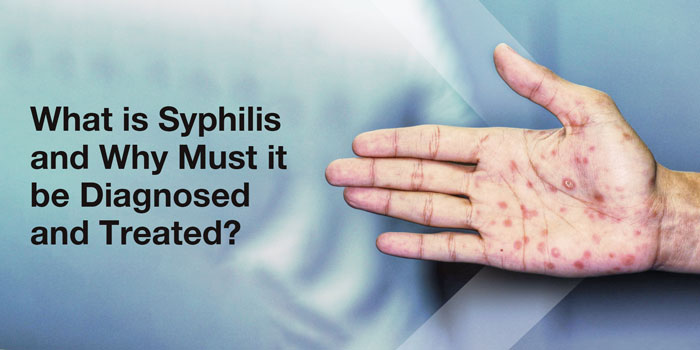Syphilis, is a sexually transmitted infection caused by the bacterium Treponema pallidum. It is a significant public health concern globally. This condition can be apparent in various stages, each presenting distinct symptoms and complications if left untreated. Understanding syphilis, its diagnosis, and treatment is crucial in preventing its spread and mitigating its adverse effects on individuals and communities.
Firstly, syphilis is highly contagious and can be transmitted through sexual contact. Moreover, it can also be transmitted from mother to child during pregnancy or childbirth, leading to congenital syphilis, which poses severe health risks to infants, including stillbirth, prematurity, and developmental delays. Given its mode of transmission and potential for adverse outcomes, timely diagnosis and treatment are imperative.
Detection of Syphilis
Detecting syphilis often begins with a physical examination and a review of medical history. Doctors may also conduct laboratory tests, including blood tests and, if necessary, cerebrospinal fluid analysis, to confirm the presence of the infection. Early diagnosis with Biocard Rapid and Elisa Syphilis Test Kit allows for prompt intervention, preventing the progression of the disease to its later stages and reducing the risk of complications.
Syphilis progresses through primary, secondary, latent, and tertiary stages, each presenting unique symptoms and health implications. In the primary stage, a painless sore, known as a chancre, appears at the site of infection, typically within three weeks to three months after exposure. If left untreated, the infection progresses to the secondary stage, characterized by skin rashes, mucous membrane lesions, and flu-like symptoms.
Without intervention, syphilis enters the latent stage, during which the infection remains dormant and may not cause any noticeable symptoms. However, the bacterium continues to proliferate within the body, leading to potential complications, including damage to the heart, brain, nerves, and other organs. In its tertiary stage, syphilis can cause severe and irreversible damage, such as neurosyphilis, cardiovascular syphilis, and gummatous syphilis, which may result in blindness, paralysis, or even death.
Syphilis Management
The cornerstone of syphilis management is antibiotic therapy, typically with penicillin or other antibiotics effective against Treponema pallidum. The choice of antibiotic and treatment duration depends on the stage of the infection and the presence of any complications. For individuals allergic to penicillin, alternative antibiotics may be prescribed. It’s important for patients to complete the full course of treatment as prescribed by their doctor to ensure the eradication of the bacterium and prevent the development of antibiotic resistance.
In addition to antibiotic therapy, the doctor may recommend partner notification and screening to prevent further transmission of the infection. Counseling on safe sex practices, including condom use, and regular testing for sexually transmitted infections are also essential components of syphilis prevention and control efforts.
Timely diagnosis and appropriate antibiotic therapy are essential in preventing the progression of the infection and minimizing its complications. Moreover, promoting safe sex practices is crucial in controlling the spread of syphilis.

